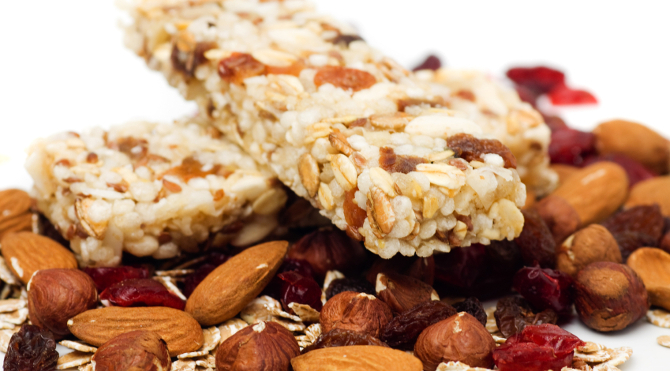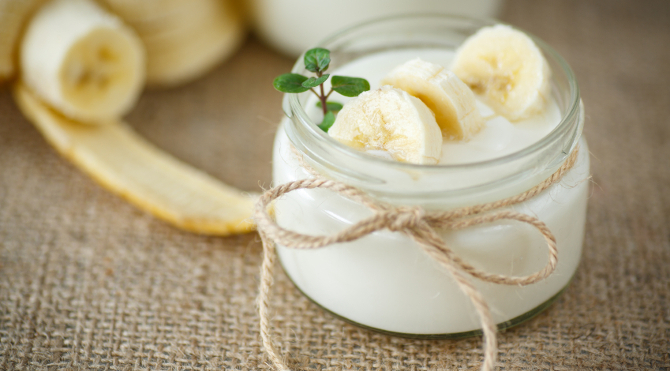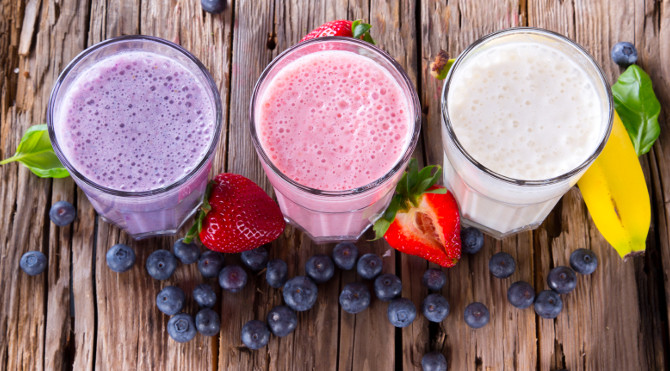Five Common Foods That Are Ruining Your Waistline
When I speak to clients, I frequently hear the words: "I thought that was good for you!" There are many foods that seem to be "healthy" but may actually be helping you gain weight. Here is a list of a few common foods that you may want to limit or swap out of your diet.
Sweet Beverages
Many people think of drinks as free passes. After all, if you don't chew it, it can't affect your waistline, right? Wrong! Consider soda. With so many calories and chemicals and virtually no health benefits, soda is among the most harmful things you can put into your body.
But what about your daily coffee run? Every morning, I see people carrying coffee and blended coffee-based drinks, some up to 24 oz. While plain black coffee is OK, many prefer lattes, cappuccinos, or adding sugar, milk, and cream to the hot beverage. Some even add whipped cream or chocolate shavings! Almost every additive contributes even more calories and fat. Think about the extra unnecessary calories you may be consuming each morning, and adjust your habit to include less sugar or cream. If you can't choke down unsweetened black coffee, opt for plain black tea sweetened with stevia.
Another example of a not-so-great "health food" is 100% juice. Although I recommend fruit juice as a good alternative to water, drinking more than one small glass (6 ounces) per day adds unnecessary calories to your daily needs. Try reaching for real whole fruit instead, or dilute your juice with water to decrease the amount of sugar you consume.
Milk is a beverage I find can be a problem for children. People worry that lower-fat milk has fewer vitamins or minerals. This is not true - check the label, and you will find that everything is exactly the same except for fat and calories. Schools typically offer 1% chocolate milk and 2% white milk, making it difficult to really determine which one is better. I usually prefer less fat in my diet, compared to calories, but others may have differing opinions. For children, try limiting milk to 2 times per day, and aim for low fat.
Granola

I'm not sure why granola has such a good reputation for being healthy. While granola varies widely - some are made with whole grain oats, and others with more added sugars - the bottom line is that an excess amount of granola can be fattening. Most granola bars are high in sugar, and you will probably feel hungry shortly after you eat it. An excess of granola can actually make you gain weight.
Most granola cereals are high in fat and sugar. Look for the first ingredient to be whole grains, and find granola bars that are high in fiber. Most likely, these varieties will make you fuller longer. Try making your own granola using honey or a natural sweetener instead of sugar. A little granola as a topping or mix in for yogurt is OK, but remember to keep the portion small.
Crackers
Most people think crackers are better than cookies because they contain less sugar and sometimes less fat. However, crackers can be deceiving. Some popular brands have a buttery flavor that adds on the fat and calories. While cheese and crackers can be a good snack, this is only really true if they are whole grain crackers with low salt.
Avoid cracker sandwiches - the ones that come prepackaged with peanut butter or cheese in the middle. While these are a quick and easy snack, they are loaded with sodium, fat, and calories. Instead, make your own cracker sandwiches. Get creative! Add various vegetables as a topping or try different cheeses. Look for crackers that are high in whole grains and low in fat.
Yogurt

Cruising down the dairy aisle, there are so many varieties of yogurt that it would probably take you months to try all the different kinds. Greek-style, low-fat, light, whipped, creamy, and yogurt drinks... The options are endless. It makes choosing yogurt tricky. Yogurt is a great option for a quick snack and has loads of calcium that are beneficial for any diet. The problem is that so many different kinds means varying amounts of fat, sugar, and calories.
Yogurt drinks are typically the worst culprit. Yogurt drinks are packed with fruit and calcium - but also calories, sugar, and fat. Remove these products from your regular shopping list. Yogurts with "fruit on the bottom" may seem healthier since you see the whole fruit, but in reality, they are packed with sugar, usually adding 100 calories to a serving. Instead, choose yogurts that are already mixed, and find the non-fat varieties.
Greek yogurts are higher in protein, keeping you feeling fuller longer. As with regular yogurt, choose non-fat or low-fat varieties, and choose Greek yogurt that is already mixed to avoid the excess sugar. Your best option is to buy plain yogurt and add your own fresh fruit.
Smoothies

While this could be part of the "Sweet Beverages" category, I feel smoothies deserve their own group. In speaking with patients, I find that most drink a smoothie because they feel it is a good way to get some fruit (or even vegetables) without having to eat them. A long time ago, this may have been true, but smoothies have become part of an elaborate industry, which usually means more calories.
When purchasing a freshly made smoothie, pay attention to the ingredients. For starters, you should not see much more than fresh fruit, 100% juice, and ice. An occasional splash of non-fat milk or yogurt is OK as well, but most smoothie places add ice cream, sugar, fruit juice (that may not be 100%), and fresh fruit that has already been sweetened. This adds a ton of calories and fat.
In addition, since it is a drink, most people assume that having a smoothie with a meal is a good idea. This is not true. In fact, smoothies are a meal replacement drink, meaning it should be the only thing you consume for breakfast, lunch, or dinner (depending on when you eat it). The safest bet is to avoid smoothies from a store, and instead make them yourself. Add some fresh fruit, juice, and yogurt to make it a satisfying meal. For a quick snack, drink only a small portion and store the rest in your refrigerator.
Rhea Li is a Registered Dietitian who received her Bachelor's degree in Nutrition and Master's degree in Public Health from the University of Texas. She has a special interest in working with children and has received her certification in pediatric weight management. Currently, she is working on a research study to determine the importance of nutrition in pediatric cancer patients. In the past, she has worked with pregnant women and their children. In her spare time, she enjoys being with family, exercising, traveling and of course, eating. If you would be interested in working with Rhea one-on-one, sign-up for FitDay Dietitian. .
-
Really want A Superb Exercise To Reduce Tummy Fat. Get That Shape Beach Ready!
Its Xmas time, everyone loves eating during the Christmas season. Ham,
-
Eat this, boost energy
Our energy levels really set the tone for the day ahead. When w
-
Best Chance of a Long Life? Not Too Heavy, Not Too Thin, Study Says
According to current guidelines, people who
-
8 Myths About Womens Fitness You Should Stop Believing Right Now
-
Weight Loss – “Turn Off the Tube and Watch the Pounds Melt Away”
Weight Loss can be greatly affected by
-
Tips To Boost Your Metabolism and Burn More Calories
Your metabolism can be affected by genetics and age bu
- DON'T MISS
- Whey Protein Shakes - Important Facts You Ought to Know
- Some Tips On Adding Muscle Mass To Your Body
- Men and Eating Disorders
- Weighing In On Weight Loss Diet Ideas
- Lose Weight - Lose it Now
- Fat Loss Revealed And Helped Many People Who Failed At Loss Weight
- Things to Avoid While You Are Trying to Lose Weight
- Why Your Idea of a Beautiful Body is Fake
- I Never Have Hunger Pangs. Here’s Why
- Herbal Weight Loss Pills: Should You Make use of Them




